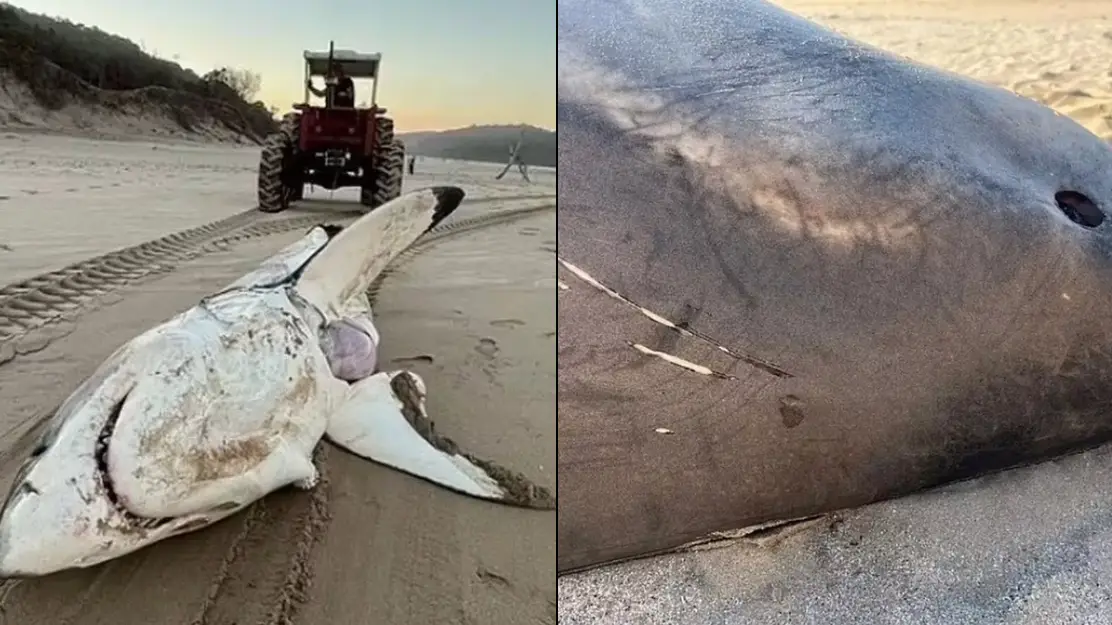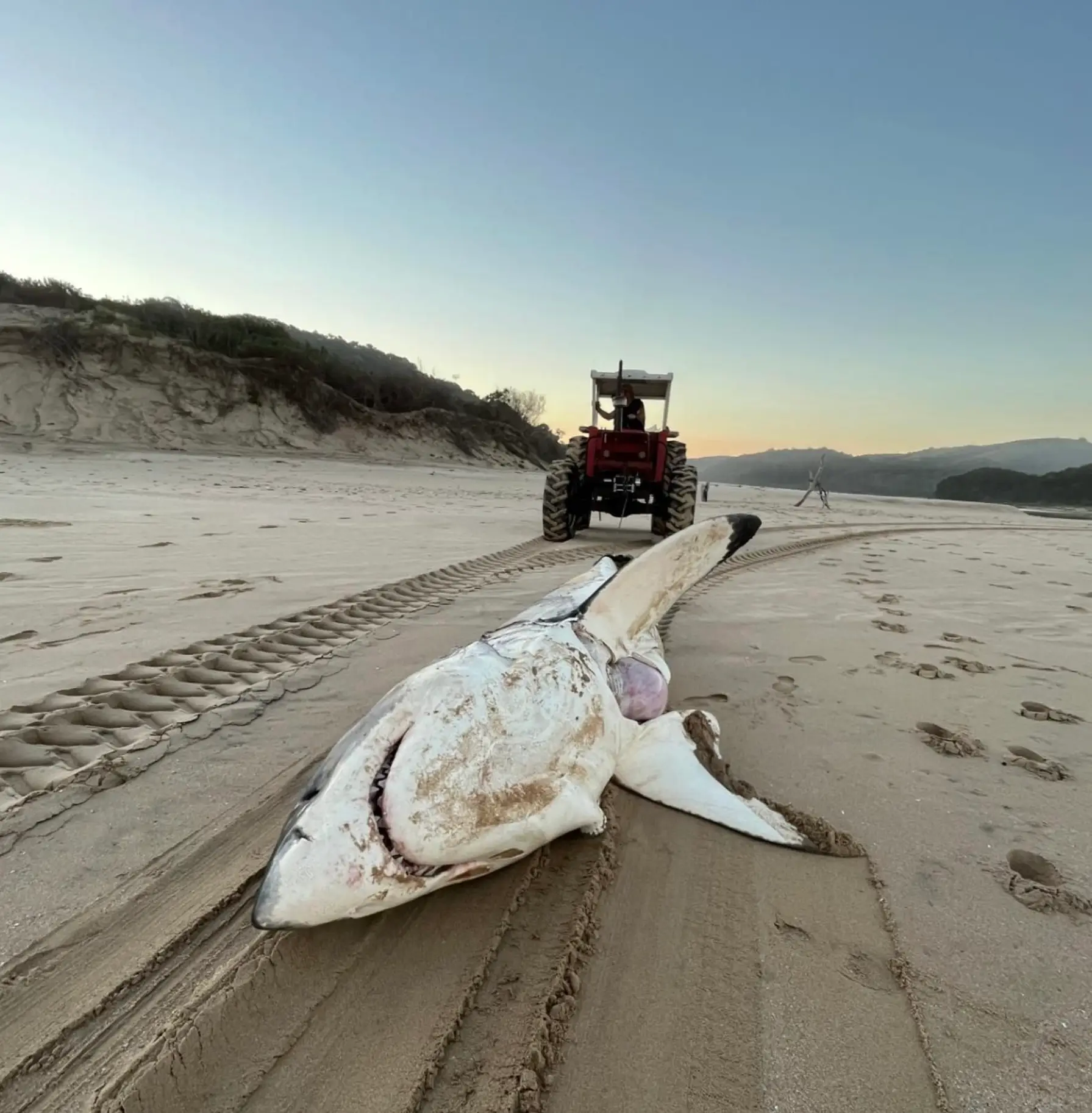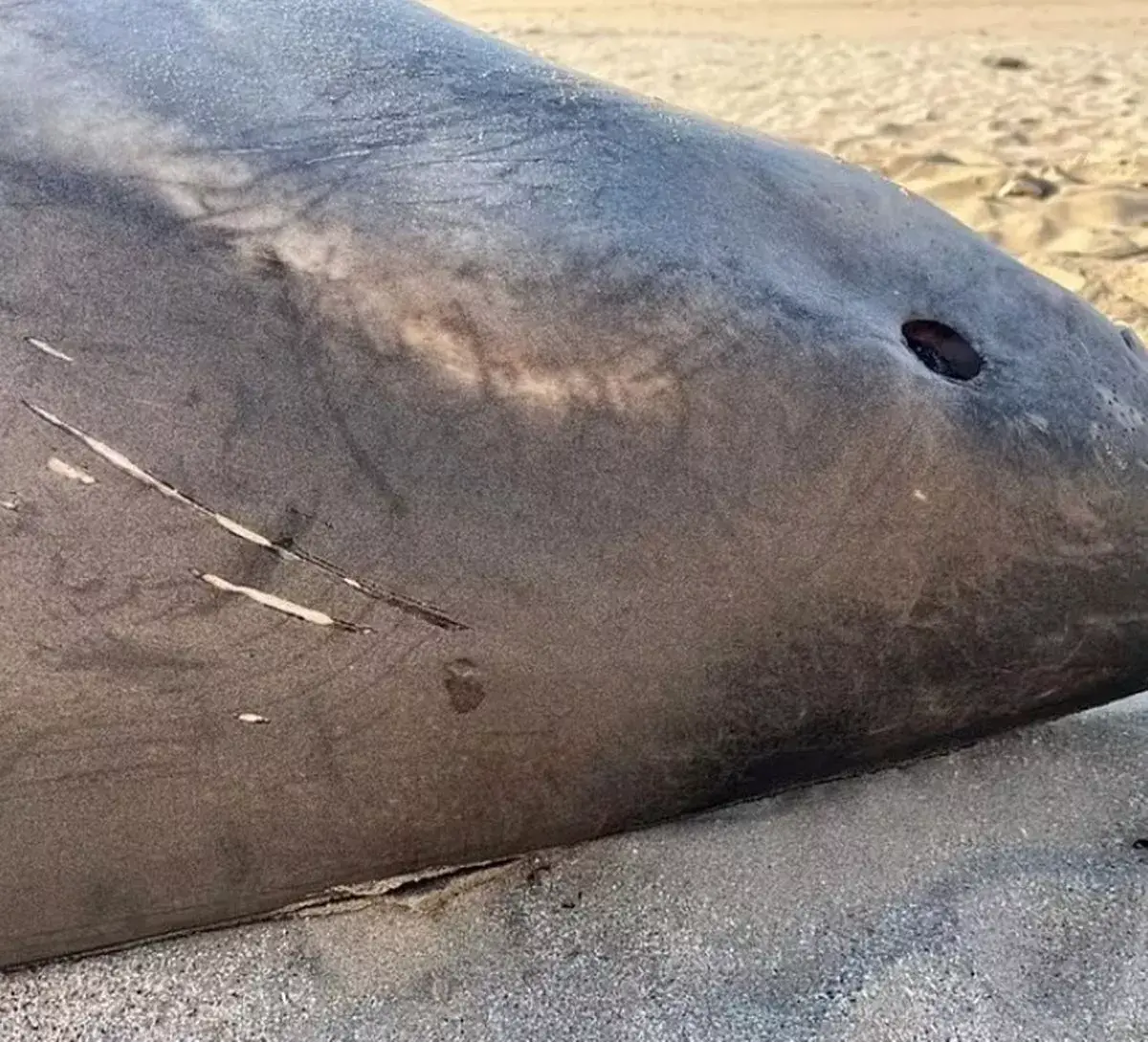
We're used to seeing the odd bit of litter, seaweed and shells wash up on the shoreline, but a 15ft great white shark which has taken a beating off a bigger and more brutal underwater beast is a new one.
But that's what beachgoers in South Africa's Eastern Cape stumbled across on 28 May while visiting the water near the mouth of the Nyara River.
A local spotted the fearsome great white shark - which is the largest predatory fish in the world - looking worse for wear on the sands before realising it appeared to have been savaged shortly after eating its lunch.
In what can only be described as a stark reminder of the hierarchy in the animal kingdom, it was later found that the shark's mangled corpse also contained the remains of a common dolphin in its stomach.
Advert
But shortly after taking a snack break, it seems that the predator ran into the head honcho of the underwater world, AKA a killer whale, and met its maker.
The great white's liver had been torn out in the brawl, which suggested that only a bigger and stronger beast could be capable of causing that much damage to one of the most fearsome creatures in the ocean.
Marine biologist Alison Towner shared images of the shocking find on social media and confirmed she subsequently found 'a freshly consumed' 6ft 6in common dolphin spilling out of its guts too.
She explained that the shark had neatly devoured its dinner in four clean pieces, which were swallowed hole, resulting in the carcass being folded up inside its stomach.
Experts were able to piece the dolphin back together as the deadly attack had happened so soon after it had been gobbled up, while they also found key evidence which helped decipher what had taken out the shark.

In an Instagram post, Towner confirmed that the great white had been a victim of 'killer whale predation'.
She explained: "Killer whale rake (teeth) marks were found on the ventral surface of the shark’s head.
"The shark’s liver was missing, with only a small piece of tissue remaining."
Scientists reckon that orcas might be targeting the beasts for their livers - as they've been filmed victoriously carrying them in their mouths after ambushing unsuspecting sharks.
Towner previously told how killer whales were seemingly specifically aiming for the organ in 2020, after conducting autopsies on sharks which had also washed up on beaches in South Africa.
She described how killer whales ripped the majority of the sharks' skin from just below the throat, allowing them access to the liver before tearing it out in a 'precise and refined way'.

The marine biologist said 'it's pretty obvious' who the perpetrator of the attack is 'when the animal is lying there with its 60 kilo liver ripped out'.
Towner described the latest discovery as a 'significant new observation' for marine biologists, as it is the 14th confirmed case of a great white shark being slain by a killer whale in South Africa since 2015.
The corpse was moved to a high-water mark to stop it from being dragged back out to sea before a full necropsy was performed the following morning.
Researchers were able to obtain tissue and muscle samples for 'ongoing research on white shark genetics and diet' - but it seems poachers got there first, as the great white's teeth had illegally been extracted.
The animal's remains were later buried at a remote site.
Topics: Sharks, Animals, World News, News